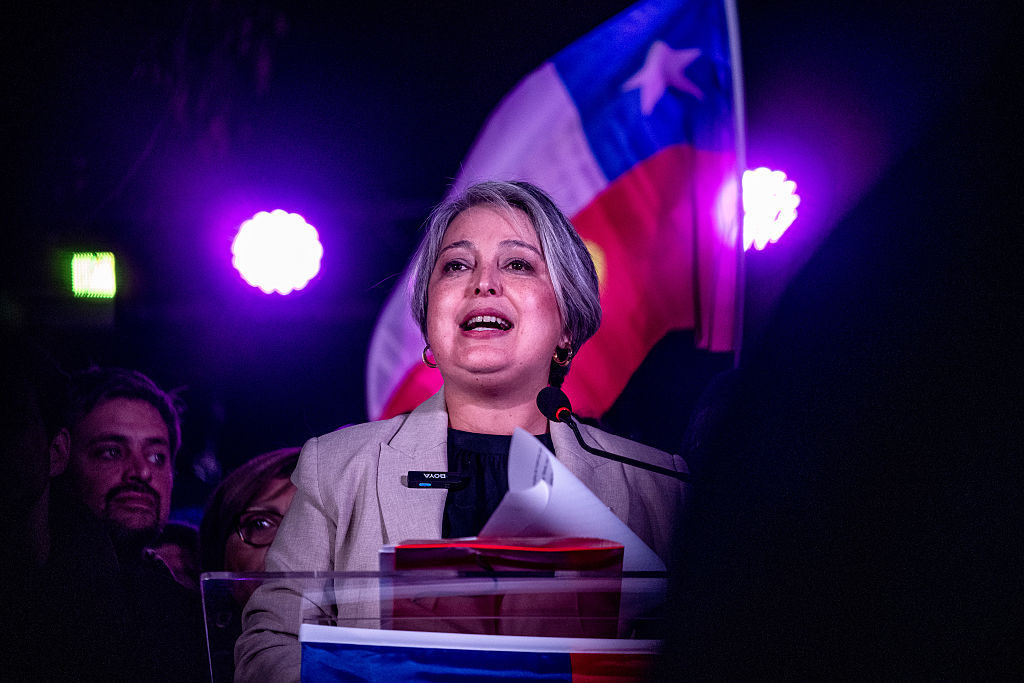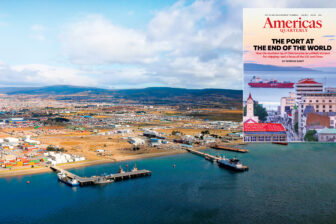Few recent primary elections have had as powerful an impact on the political narrative as the surprising victories of Democratic Socialist Zohran Mamdani, selected as the Democratic Party’s mayoral candidate in New York City, and Jeannette Jara of the Partido Comunista de Chile, chosen as the presidential candidate of the left-wing Unidad por Chile (UC) coalition on June 29.
Both Mamdani and Jara defeated establishment figures who, in the weeks leading up to the election, had appeared to be the presumptive nominees for their respective parties. Their victories suggest that the anti-establishment wave, once dominant within right-wing politics, is now finding its echo on the left.
It is still too early to draw firm conclusions, but the hard left may be gaining traction with some voters, leaving the political center increasingly desolate. While Chile is known for its tradition of moderate politics, Jara’s primary win and the emergence of hard-right candidates point to a more polarized run-up to the first-round vote on November 16.
A divided left enters the fray
Jara’s emergence as the standard-bearer of the Chilean left came as a surprise. She beat her second-place rival Carolina Tohá by a whopping 32 percentage points, although turnout was low, at around 1.4 million voters.
Tohá, the center-left candidate of the Partido por la Democracia, had held a comfortable lead over left-wing candidates in polling until earlier this month. She served as the powerful interior minister under President Gabriel Boric, having been brought into his administration following the failure of the constitutional referendum in September 2022. Tohá became the face of the government’s olive branch to the center-left establishment that Boric had long criticized throughout his political career.
Meanwhile, Jara served as Boric’s labor minister since his inauguration in March 2022 until April 2025, representing the voice of the hard left within the Cabinet. Jara joined the Communist Party when she was only 14 years old, and has defended the party’s line on foreign policy and economic matters, but also showed pragmatism as labor minister. However, her approach to governing has also raised concerns by the more radical factions of the party. Even so, the stage was set for a contest between two contrasting visions of the left—one that Jara decisively won.
The main legislative accomplishments of the Boric administration revolved around labor and pension reform, both under Jara’s purview. The minimum wage increased by over 50% compared to 2022, the standard working week was reduced from 45 to 40 hours, and the government passed a wide-ranging pension reform that expanded both the coverage and generosity of the minimum universal pension. Jara leveraged these achievements to persuade left-wing voters of the feasibility of advancing a more state-led, demand-driven model of growth and development.
The Boric administration’s legacy on security is less impressive and weighed on Tohá’s appeal to primary voters, given that, as interior minister, this fell under her portfolio. Polls indicate that under her watch, public concern about crime has not improved; in fact, it remains the most important issue voters believe the country faces.
Tohá’s more moderate policies, which resemble those of the Michelle Bachelet-era left and the post-referendum Boric, are more appealing to voters than Jara’s more left-wing politics. Even so, this more pragmatic option was not enough to convince left-wing voters who want more radical change than Tohá was offering.
Jara is pushing for an even greater increase in the minimum salary, defends statist resource nationalism in the critical minerals sector, the eventual elimination of the private pension model and increasing taxation on high-income individuals. On foreign policy, she has called to suspend diplomatic relations with Israel, and although she has said there is an authoritarian regime in Venezuela, she has stated that Cuba has a “democracy different from ours.”
The election is the right’s to lose
Jara’s path to the presidency will be challenging. The most obvious obstacle is her identity as a communist—a label likely to face strong opposition from many voters uncomfortable with radical politics. Jara will also have to navigate Boric’s low approval ratings. A recent Cadem survey showed his approval at 32% in late June, while 61% of those polled disapproved of his handling of the presidency. Therefore, she will need to find a balance between defending the government’s legacy and criticizing it for not advancing enough on left-wing policies.
Her campaign is likely to focus on economically populist issues to appeal to voters frustrated by the high cost of living and limited employment opportunities (unemployment stood at 8.9% in May). However, the election is expected to center on the issue of crime, traditionally a weak spot for the left and an issue that favors right-wing parties.
Polls consistently indicate that the next president is likely to come from the right, with Evelyn Matthei of the center-right Chile Vamos (CV) leading. Far-right candidate José Antonio Kast of the Partido Republicano (PR) is also performing strongly. The anti-establishment libertarian candidate Johannes Kaiser of the newly formed Partido Nacional Libertario (PNL) remains competitive. Matthei is currently most likely to defeat her rivals, as centrist voters are expected to rally behind her to prevent the election of a hard-right or hard-left candidate.
Nonetheless, Matthei’s lead in the polls is far from secure, and there is a real possibility she could fail to reach a runoff. The presidential election risks becoming a repeat of the 2021 contest, when in the first round Kast secured 27.91% of votes compared to Boric’s 25.82%, but lost to Boric in the second round by more than 11 percentage points.
Kast’s strong support base could carry him through, especially if the center-right vote is split. He could face Jara in the December 14 runoff. Kast appears better positioned to win this time, given that the political center has shifted to the right. Even so, Jara’s rise as the standard-bearer of the left may energize Chile’s hard left and would reflect the country’s turn toward more polarized politics.







